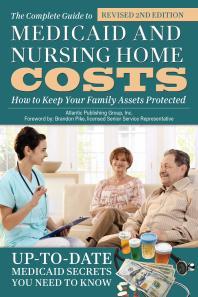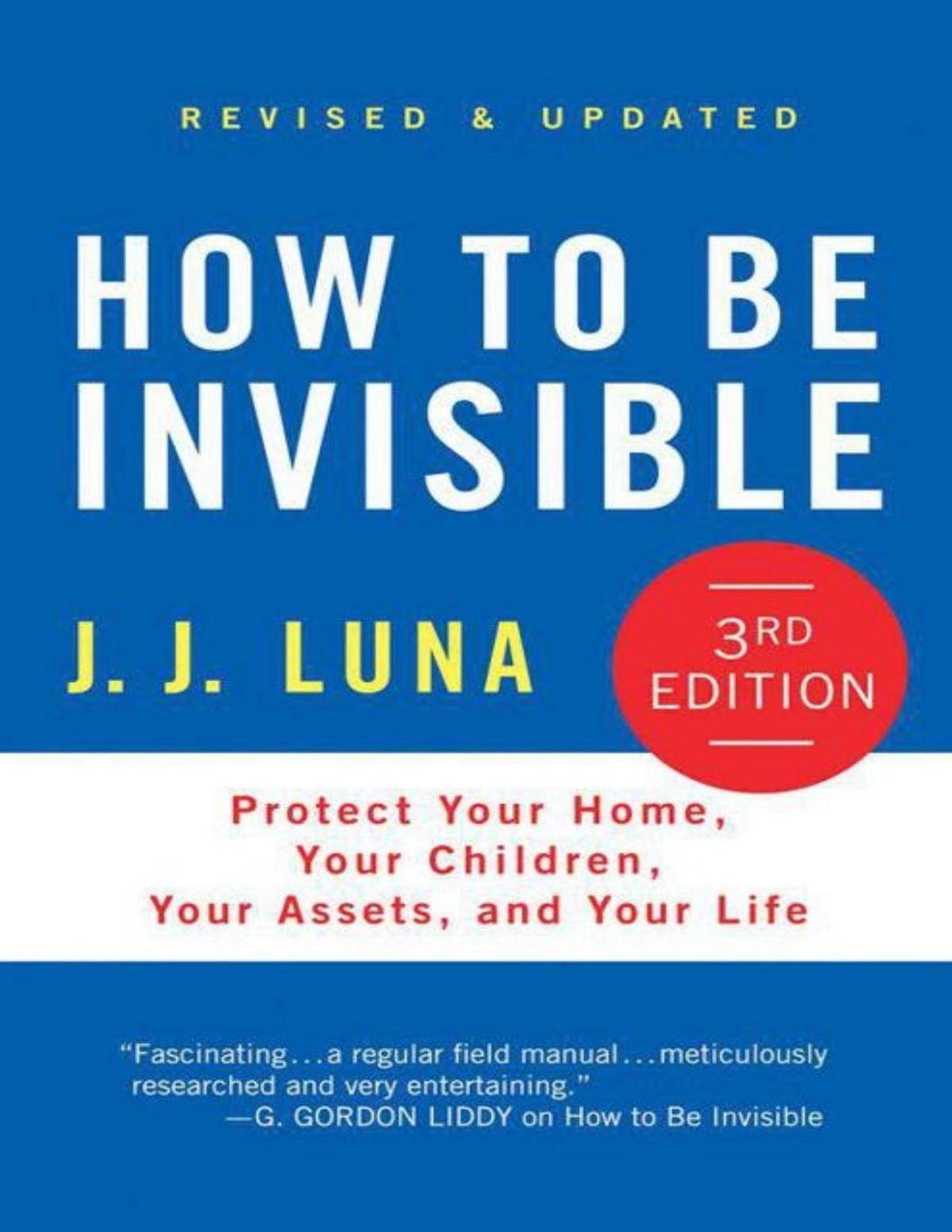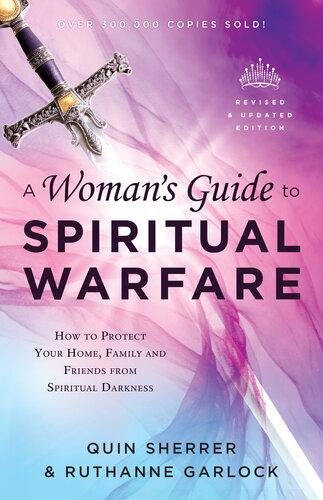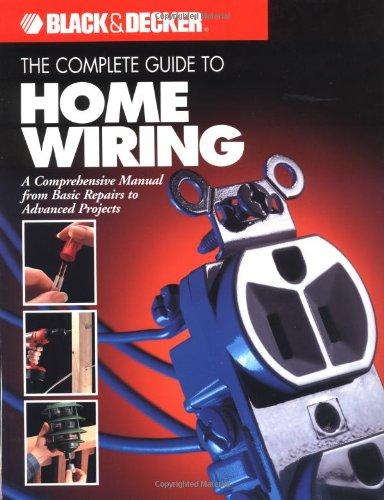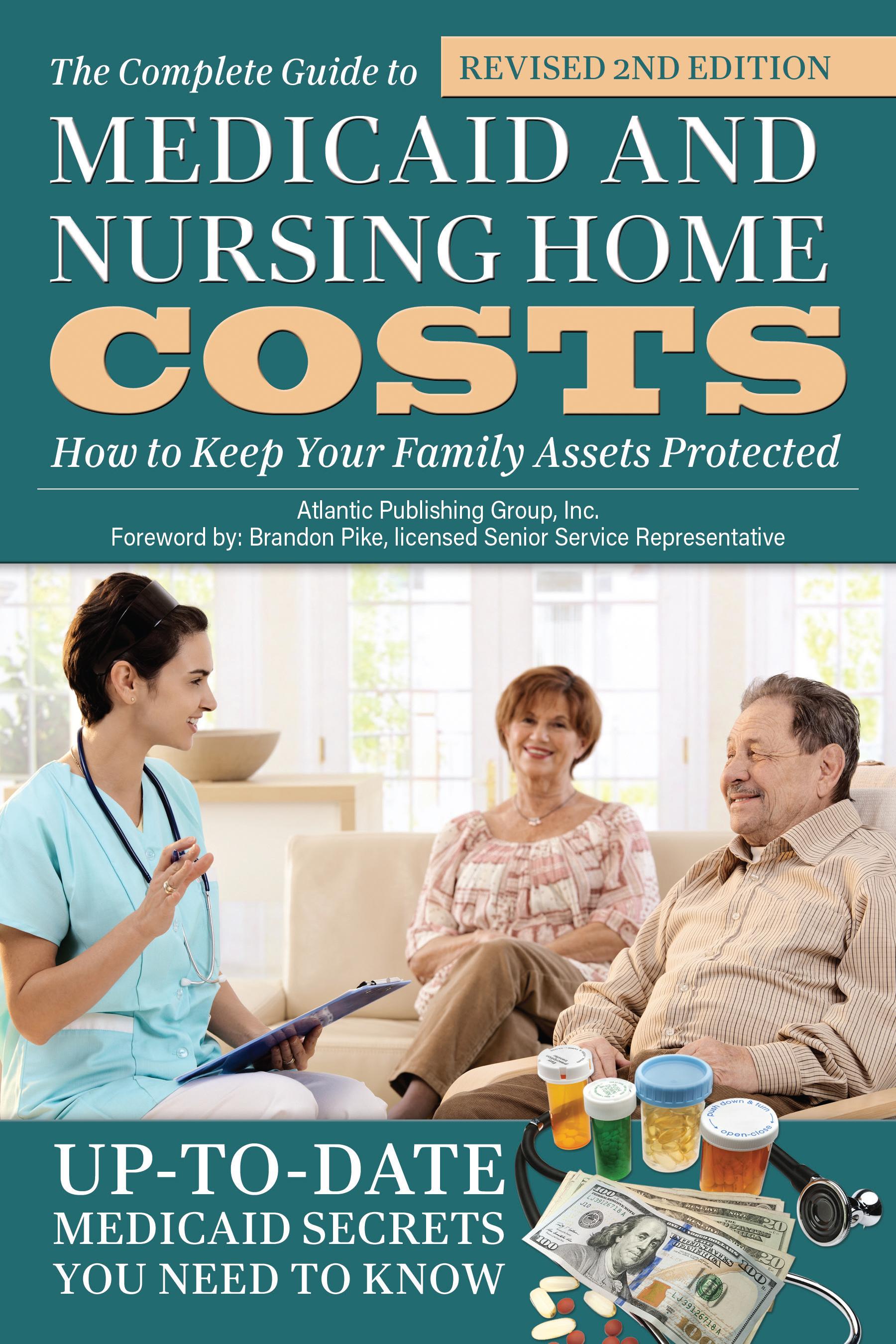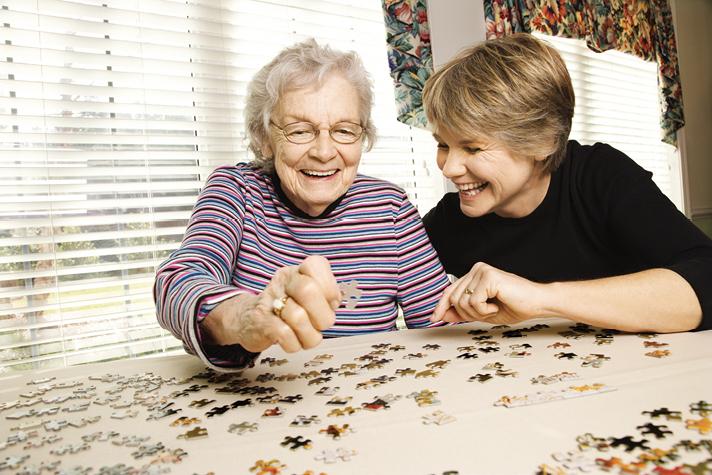https://ebooknice.com/product/the-complete-guide-to-medicaid-and-
Instant digital products (PDF, ePub, MOBI) ready for you Download now and discover formats that fit your needs...
Start reading on any device today!
(Ebook) How to Be Invisible 3rd edition Protect Your Home, Your Children, Your Assets, and Your Life by J. J. Luna ISBN 9781250010452, 9781250015150, 9789125001512, 9125001515, 1250010454, 1250015154
https://ebooknice.com/product/how-to-be-invisible-3rd-edition-protect-your-homeyour-children-your-assets-and-your-life-34721278
ebooknice.com
(Ebook) A Woman's Guide to Spiritual Warfare: How to Protect Your Home, Family and Friends from Spiritual Darkness by Quin Sherrer; Ruthanne Garlock ISBN 9781441230294, 1441230297
https://ebooknice.com/product/a-woman-s-guide-to-spiritual-warfare-how-toprotect-your-home-family-and-friends-from-spiritual-darkness-48917708
ebooknice.com
(Ebook) The Ozone Miracle: How you can harness the power of oxygen to keep you and your family healthy by Frank Shallenberger ISBN B06XDCGPCF
https://ebooknice.com/product/the-ozone-miracle-how-you-can-harness-the-powerof-oxygen-to-keep-you-and-your-family-healthy-7411378
ebooknice.com
(Ebook) Complete Cat Care: How To Keep Your Cat Healthy and Happy by Dorling Kindersley ISBN 9781465416049, 9781409346388, 1465416048, 1409346382
https://ebooknice.com/product/complete-cat-care-how-to-keep-your-cat-healthyand-happy-5264576
ebooknice.com
(Ebook) How to Keep Your Cool: An Ancient Guide to Anger Management by Seneca ISBN 9780691181950, 9780691186139, 0691181950, 0691186138
https://ebooknice.com/product/how-to-keep-your-cool-an-ancient-guide-to-angermanagement-55059122
ebooknice.com
(Ebook) The Complete Guide to Writing & Publishing Your First e-Book by Martha Maeda ISBN 9781601386083, 1601386087
https://ebooknice.com/product/the-complete-guide-to-writing-publishing-yourfirst-e-book-49420872
ebooknice.com
(Ebook) The Black & Decker Complete Guide to Home Wiring: Including Information on Home Electronics & Wireless Technology, Revised Edition by Editors Of Creative Publishing ISBN 1589232135
https://ebooknice.com/product/the-black-decker-complete-guide-to-home-wiringincluding-information-on-home-electronics-wireless-technology-revisededition-2158732
ebooknice.com
(Ebook) The Complete Guide to Home Wiring: A Comprehensive Manual, from Basic Repairs to Advanced Projects (Black & Decker Home Improvement Library; U.S. Edition) by The Editors of Creative Publishing international ISBN 0865734291
https://ebooknice.com/product/the-complete-guide-to-home-wiring-a-comprehensivemanual-from-basic-repairs-to-advanced-projects-black-decker-home-improvementlibrary-u-s-edition-2168790
ebooknice.com
(Ebook) The Complete Guide to Contracting Your Home by Kent Lester (Author), Dave McGuerty (Author) ISBN 9781558708716, 1558708715
https://ebooknice.com/product/the-complete-guide-to-contracting-yourhome-5552632
ebooknice.com
Complete Guide to MEDICAID AND NURSING HOME
REVISED 2ND EDITION Atlantic Publishing Group, Inc.Foreword by: Brandon Pike, licensed Senior Service Representative
THE COMPLETE GUIDE TO MEDICAID AND NURSING HOME COSTS: HOW TO KEEP YOUR FAMILY ASSETS PROTECTED (REVISED 2ND EDITION)
Copyright © 2016 Atlantic Publishing Group, Inc.
1405 SW 6th Avenue • Ocala, Florida 34471 • Phone 800-814-1132 • Fax 352-622-1875
Website: www.atlantic-pub.com • Email: sales@atlantic-pub.com
SAN Number: 268-1250
No part of this publication may be reproduced, stored in a retrieval system, or transmitted in any form or by any means, electronic, mechanical, photocopying, recording, scanning, or otherwise, except as permitted under Section 107 or 108 of the 1976 United States Copyright Act, without the prior written permission of the Publisher. Requests to the Publisher for permission should be sent to Atlantic Publishing Group, Inc., 1405 SW 6th Avenue, Ocala, Florida 34471.
Library of Congress Cataloging-in-Publication Data
Title: �e complete guide to Medicaid and nursing home costs : how to keep your family assets protected / by Atlantic Publishing Group, Inc. ; foreword by Brandon Pike
Description: Revised 2nd edition. | Ocala, Florida : Atlantic Publishing Group, Inc., [2016] | Includes bibliographical references and index
Identi�ers: LCCN 2016046724| ISBN 9781620230558 (alk paper) | ISBN 1620230550 (alk paper) | ISBN 9781620233535 (library binding : alk. paper) | ISBN 9781620230718 (e-ISBN)
Subjects: | MESH: Medicaid—economics | Nursing Homes—economics | Insurance, Long-Term Care economics | Risk Management—economics | Risk Management—legislation & jurisprudence | Aged | United States | Popular Works
Classi�cation: LCC RA412.4 | NLM W 250 AA1 | DDC 368.4/200973—dc23 LC record available at https://lccn.loc.gov/2016046724
LIMIT OF LIABILITY/DISCLAIMER OF WARRANTY: �e publisher and the author make no representations or warranties with respect to the accuracy or completeness of the contents of this work and speci�cally disclaim all warranties, including without limitation warranties of �tness for a particular purpose. No warranty may be created or extended by sales or promotional materials. �e advice and strategies contained herein may not be suitable for every situation. �is work is sold with the understanding that the publisher is not engaged in rendering legal, accounting, or other professional services. If professional assistance is required, the services of a competent professional should be sought. Neither the publisher nor the author shall be liable for damages arising herefrom. �e fact that an organization or Web site is referred to in this work as a citation and/or a potential source of further information does not mean that the author or the publisher endorses the information the organization or Web site may provide or recommendations it may make. Further, readers should be aware that Internet Web sites listed in this work may have changed or disappeared between when this work was written and when it is read.
TRADEMARK DISCLAIMER: All trademarks, trade names, or logos mentioned or used are the property of their respective owners and are used only to directly describe the products being provided. Every e�ort has been made to properly capitalize, punctuate, identify, and attribute trademarks and trade names to their respective owners, including the use of ® and ™ wherever possible and practical. Atlantic Publishing Group, Inc. is not a partner, a�liate, or licensee with the holders of said trademarks.
CONTENT DISCLAIMER: �e author has made every e�ort to ensure the accuracy of the information within this book was correct at time of publication. �e author does not assume and hereby disclaims any liability to any party for any loss, damage, or disruption caused by errors or omissions, whether such
Long-Term Care
Gifting
Penalty period and DRA
Value of the gift
Look-back period
Gift splitting
Gift trusts
Long-term life insurance and gifts
Gift taxes
Generation skipping transfer tax
How to transfer gifts
Children as Paid Caregivers
Warnings
Limited family partnerships
Chapter 4: Asset Protection Strategies — Safe Investments
Life Insurance
Annuities
Equity-�xed annuities
Fixed annuities
Equity-indexed annuities
Life annuities
Term certain annuities
Immediate annuity
Private annuity trust
Medicaid annuity
Trusts
Miller trust
Revocable living trust
Grantor irrevocable trust
Special needs trust
Testamentary special needs trust
Irrevocable life insurance trust
Charitable Remainder Trust (CRT)
Trusts vs. outright gifts
Your trustee
CDs
Guaranteed Bonds
Chapter 5: Asset Protection Strategies Wills, Deeds, & Your Home
Wills
Oral will
Deathbed will
Holographic will
Self-probating will
Living will
A Health Care Surrogate Designation
Deeds
Survivorship deed
Joint owners with rights of survivorship
Lady Bird Deed or Enhanced Life Estate Deeds
Bene�ciary deeds
Other deeds
Estate recovery trends in individual states
What to Do With Your Home
Keep it, sell it, or transfer to kids?
Joint ownership
Add children’s names to the deed
Transfer to a sibling
Life estate
Transfer to children while keeping life estate
Purchase a joint interest in a child’s home
Child moves into your home
Parent moves in to the home
Taxes on the home
Chapter 6: Long-Term Care Options
Home Care Programs
Assisted Living Centers
Adult Day Care
Adult Day Healthcare Options
Taking Care of Your Parents or Elderly Relative
Alternative Healthcare
Chapter 7: Single vs. Married Resources
Determining Value of Assets
Countable assets
Excluded assets
Unavailable assets
Community Spouse
50 & 100 Percent States
�e Snapshot Rule
Purchasing Annuities
Chapter 8: Elder Lawyers
Case Study: Law O�ce of William J. Brisk
What Is Certi�cation and Is It Important?
Preparing to Meet an Elder Lawyer
Case Study: �e Karp Law Firm
Chapter 9: Alzheimer’s Disease & Medicaid
�e Basics
Financial Planning
Type of Long-Term Care of Alzheimer’s Patients
Appendix A: Where to Contact the Agency in Your State
Appendix B: Medicaid News From State to State
Bibliography
Glossary
About the Experts
An Overview of Medicaid
What Is Medicaid?
Medicaid is a program operated by the Federal Government and individual states to provide medical coverage for low-income or poor individuals and families. �ese people commonly have inadequate insurance to cover their needs or no insurance at all. Each state has its own Medicaid o�ce, and di�erent states have varying laws that determine who quali�es. �e program has di�erent names in some states, such as Medical Assistance or Med-Cal.
FROM THE EXPERT: Marty Fogarty
An issue that Congress has to deal with is the question of what happens when an individual faces a health concern that is beyond their means to pay for. And what they came up with was a thing called Medicare, an insurance program for the elderly. They decided that once an elderly person faces one of these listed ailments, they will qualify for some sort of benefit, payment, or financial assistance for dealing with that situation. That’s how Medicare was born, and that’s what it did for a long time.
Medicaid is a cousin of Medicare. It’s another aid program. Where Medicare is a more straightforward program because we pay into it as we work through our lives, we don’t pay into Medicaid directly. We pay into it indirectly through our taxes. When it comes to the elderly, Medicare is financial aid for people with
certain acute ailments, and Medicaid is financial aid for persons with certain chronic ailments. Medicare is going to help me if I need a new hip, a new knee, or a new bypass surgery. That’s an acute healthcare issue. Medicaid is going to help me when I have Alzheimer’s, dementia, or Parkinson’s when I’ve got a new normal to deal with.
Low-income women, children, and the elderly are some of the groups that �t into the Medicaid program. �e blind, the disabled, caretakers, low-income pregnant women, and the elderly who need long-term care or nursing home care often qualify for this program. Anyone who quali�es for Medicaid must meet certain strict requirements.
Medicaid was established in 1965, around the same time that Medicare was created as part of the Social Security Act Amendments. �ese amendments established Medicare as a health insurance program for the elderly and Medicaid as a health insurance program for the poor. �e federal government funds most of Medicaid and often gives more money to poorer states. Average elderly individuals and couples usually do not qualify for this program, as they have a home, reasonable income, and other assets. Yet, Medicaid is one of the only programs that cover nursing homes costs. If you were to become ill and had to go to a nursing home, the cost could wipe out your savings and assets. �e average monthly cost of a nursing home per month for one person ranges from $6,757.67 to $9,096.00.
FROM THE EXPERT: Marty Fogarty
Look at Medicaid and Medicare as cousins. They are programs that Congress has enacted to help the elderly when facing an elder-health issue. If they have an acute elder health issue, then Medicare is going to be the program that is going to help them. If the elderly person faces a chronic health issue, then Medicaid is going to be the program that is going to help by providing financial aid for a nursing home, or some version of that.
most coverage includes inpatient and outpatient hospital services, doctor services, medical and surgical dental services, lab and X-ray, nursing facility services for those 21 or older, and family nurse practitioner services.
Some services are optional, but most states under Medicaid will o�er ambulance and home health services to those in nursing homes, prescription drug coverage, eye doctor visits and glasses, prosthetic devices, dental, and inhome assistance.
If you qualify and are living at home, Medicaid will pay for some services. Some states have the HCBS program, and most now can o�er this program without applying for a waiver through the federal government. Check with your state to see if it o�ers this plan and what it will cover. Program coverage includes homemaker and home health aides, personal-care services, adult day health services, rehabilitation for safety and hygiene, housekeeping, and case management.
HCBS may apply to certain services at assisted-living centers. Assisted-living centers must be Medicaid certi�ed to be covered. HCBS will not cover basic room and board, because assisted-living centers are not considered nursing homes.
When a person is quali�ed, Medicaid will pay full cost of the nursing home bill. �is includes room, meals, and all medical services. Some nursing homes do not accept Medicaid programs or payment. If you or a family member moves into a nursing home, �nd out whether Medicaid is accepted. Nursing homes that do not accept Medicaid payment require the patient to transfer to another facility if money or private pay options run out. It can be awfully upsetting for a patient to have to move suddenly after getting comfortable at a nursing home.
Home- and community-based living program
Changes are underway to reform Medicaid programs for the elderly. Many states o�er home- and community-based services as an option for Medicaid recipients. �is means they will not be in a nursing home but will be assisted in continuing to live at home alone or with a family member. Because it is so
expensive, there is a trend of some states o�ering options or programs other than nursing home care.
New Jersey signed the Dignity in Choice and Long Term Care Act in 2006 in order to �nd a better balance between long-term care and community-based services. �e state continues to look for models that are cost-e�ective alternatives to living in a nursing home.
Vermont has developed a program where spouses may be paid to care for family members. �ere is an option for 24-hour in-home care using a home provider or shared living arrangement. Vermont has monitored the program and continues to look for other cost e�ective, community-based programs.
In Idaho, a reform initiative seeks to encourage preventative treatment and provide alternative treatment for the elderly. It includes case management, dental, vision, transportation, and extensive mental-health services for individuals with developmental disabilities.
�e state of Alabama Departments of Medicaid, Senior Services, and Rehabilitation Services have programs providing a monetary allowance to determine which services an individual needs. �e elderly person can choose whom to hire for their care and save money for equipment purchases. Consumers decide who provides care and when it is needed. �ey develop and follow a spending plan and hire and manage their support sta�.
�is shift for long-term care to community-based care is the trend. HCBS waivers give states funds for services that do not �t the typical Medicaid longterm programs. Some of these services are for case management, homemakers, personal-attendant care, home health aide services, adult day care services, transportation, home-delivered meals, and respite care.
Texas has the Department of Aging and Disability Services (DADS) to assist individuals who go from nursing homes to community-based programs. �is includes some elderly who have behavioral health conditions. For those in nursing homes, the state will build on services that are home and community based.
Providers for these programs must meet certain criteria. �ey must be licensed assisted-living centers, home health agencies, meal delivery services, local health departments, and other such agencies. For nutritional services, they must be licensed nutritionists, dieticians, home health agencies, hospitals, and services approved to participate in Medicaid.
�is Medicaid waiver program provides choices for individuals to pick their own provider for the medical services for which they are eligible. �is gives elderly people living at home again more control over their lives, which means a better lifestyle for everyone. Choices may be limited depending on the program the state o�ers. Services from this program assist the elderly who are vulnerable and need more services but do not qualify for a nursing home.
Respite services are available for short periods to give regular caregivers a break or some relief. Many HCBS recipients live with children or are alone and need help to do daily tasks. �e Medicaid Adult Day Care program provides services to adults aged 16 and older, including the elderly. It is a structured program that provides health, social, and related support services. It allows those who live in the community to receive care during the day in a social group environment and gives respite to caregivers at home.
More states are incorporating these services to keep the elderly out of nursing homes and help them remain independent and living at home.
Medicaid care coordination
Medicaid care coordination is a service that assesses the needs of a client and coordinates services that meet the client’s needs. Some states use this service with Medicaid to streamline care for individual clients and improve its quality.
FROM THE EXPERT: Marty Fogarty
What we’re taught in this world by society is that you should run out and find a lawyer, you should find a CPA, or you should find a financial adviser. And what happens is you run out, and you go get those guys, and they all help you, and you do your own thing. And then you’re going through your life, and you’re OK in your 30s, 40s, and 50s, maybe. But at some point you realize, “I’m spread out all over the place.”
So, I feel that the name of the game is creating a comprehensive plan that is going to protect your wellbeing legally, financially, and personally. And what you need is a coordinated team that’s going to be working together to support you.
Arizona has a program for elderly persons who are at risk of having to go into a nursing home. �e members can move between the two programs as needed.
California provides the program for those who are seriously ill. �e state strives to improve health and decrease the long-term costs of chronic illness by using a holistic approach. California provides disease management, �nancial and social support, and referrals to improve mobility.
Kentucky uses the the private sector, universities, providers, and others to support the overall care coordination and utilization of supplies and services. �e program o�ers medical services in areas of diabetes, asthma, adult obesity, and heart initiatives.
Some programs provide personal assistance, adult foster care, adaptive aids, medical supplies, respite care, emergency response, and therapies.
Here are some examples of successful case management programs in Minnesota:
• A case manager was helping an elderly woman who lived home. �e elderly woman had mental health issues and a severe skin condition that was worsening. She refused to go to her doctor, because she feared leaving the neighborhood, and the doctor was out of the region. �e case manager arranged for her to see a doctor in the area. She went to the specialist, and her skin condition improved, allowing her to live at home independently.
• A vulnerable 88-year-old woman was living at home with the help of services and family. She needed several items to remain at home, including a raised toilet seat, a wheelchair, grab bars in the shower, a walker, and a bath transfer bench. �e care coordinator was able to get her supplies, helping family caregivers take care of the woman at home. She also bought a blender, as the woman needed pureed food and better nutrition.
• A 74-year-old man had diabetes and heart disease. He had trouble eating right and could not keep himself or his home clean. He was hospitalized several times before he was enrolled in the managed-care program. His coordinator arranged meals on wheels, a home health aide, housekeeping, and skilled nursing. His health and outlook improved, and he has not been hospitalized since he began the program.
• Mrs. J has a history of heart problems and constant fatigue. After Mrs. J underwent triple bypass surgery, the coordinator arranged a temporary nursing home stay for her. Her family was unable to provide her with the care she needed. She did all the paperwork and worked with a nursing home to make sure she was recovering. When she returned home, the coordinator arranged housekeeping services and registered nurse visits for the woman.
How do you know whom to contact to help you with your Medicaid planning?
same basic, federal law, but it is administered at a very local level, and there are a lot of very di�erent ways for Medicaid to apply. Some places will allow Medicaid for homecare, some will allow it for combined care, and some will only allow it for nursing care.
Medicare is a federally-funded program providing medical coverage for people 65 and older. It covers the disabled and the elderly. Medicare Part A covers inpatient services such as hospital inpatient care and 100 days of care in a nursing home. It also covers care for terminally ill patients. Individuals who decide to carry only Part A & B and are not on Medicaid or a Part C should be aware of the Part A deductible. �e Part A deductible is currently priced at $1,288.00 per bene�t period. Each hospital stay begins a new bene�t period. If you complete any kind of treatment, including skilled nursing care (rehab), and do not get readmitted for 60 days, you will pay another $1,288.00 upon your next hospital visit, unless it’s proven to be related to the same illness. At present, there is no limit to the number of times you may be obligated to pay this deductible.
Medicare pays only limited nursing home care for patients who require limited stay to recuperate from an illness; it does not provide for long-term nursing care. Medicare Part B is optional, but you must elect to decline if you would not like coverage. Otherwise, you will be automatically enrolled. Individuals pay for the plan through deductions from their Social Security check. �e 2016 Part B base premium for someone aging in is $121.80, but does not pertain to all. �e Part B premium will be higher depending on income. It covers preventive care, tests, screening, physicians’ services, and other basic medical services, and has an annual $166.00 deductible unless covered by Medicaid.
Medicaid is not available to everyone 65 or older. It is based on strict income guidelines and need. It works with Medicaid to �ll in gaps not covered by Medicare.
�e PACE program is modeled after long-term care and acute services developed by Lok Senior Healthcare Services of California. �e program was
tested in the 1980s and was developed to address needs of long-term care clients, providers, and programs that paid for the services. It allows many participants to remain at home instead of being put in a nursing home or longterm care facility.
�e BBA established the PACE program as a permanent part of Medicare and allows states to provide PACE services to Medicaid applicants. �e state plan must include PACE as an optional Medicaid bene�t before the individual state can participate in programs with PACE providers.
Participants in this program must be 55 years or older, live in the state, and be certi�ed for nursing home care by the state agency. �is program became the sole program for Medicare- and Medicaid-eligible enrollees. It provides primarily social and medical services for adult day care centers and in-home services. �e providers receive Medicare and Medicaid monthly payments if they qualify. A team assesses the needs of individual participants for services. �e average time it takes to process a PACE application is nine months. Some of the services covered are prescriptions drugs, hospice care, and mental health services.
Individuals who are covered by Medicare Part A or B and by part of Medicaid are known as dual eligible. People who have Medicare and limited income may get help from Medicaid for paying out-of-pocket medical expenses or what Medicare does not cover. �is dual program is sometimes called the Medicare Savings Program. Services covered by Medicare will be �rst paid by this program, and the rest will be paid by Medicaid.
How Do I Apply?
You apply for bene�ts in your state at the agency that manages Medicaid. It varies from state to state, but all states have an agency that administers the program. You can write, call, or go in person to your state department of human or social services or apply online. People on supplemental security income or old age pension automatically receive Medicaid.
You can �nd contact information for these agencies in the government-issued blue book or your local phone book. See the appendix for a list of Medicaid agencies by state. Some of the agencies are called by di�erent names, such as the Department of Health and Social Services; Healthcare Cost Containment; Department of Health Services; Healthcare Policy and Financing; Human Services Division; Agency Healthcare Administration; Department of Community Health; Family and Social Service Administration; Department of Health and Hospital; and the Department of Health and Mental Hygiene.
It is important to apply only when you think you or a family member will need Medicaid. When you apply too early, you are often ruled ineligible for Medicaid bene�ts. You may have to spend your assets or money before you qualify. �is can cost you and your family thousands of dollars in medical bills. Often, it is wise to consult an elder-law attorney or specialist who can help you qualify without losing all your assets.
Another mistake some older people make is giving away their money or home too early. Sometimes, this causes tax problems and Medicaid complications that a�ect eligibility. Gifts can, at times, cause periods of ineligibility for Medicaid bene�ts.
When someone applies too late, that person may lose the opportunity to have nursing home costs and medical bills paid. �is could cost your family or yourself the loss of your assets, home, savings, and other investments. Many individuals have lost all their money to a nursing home and state after
becoming chronically ill. Poor planning can mean many months of not being eligible.
When applying for Medicaid, you have to provide income and asset information. You need records of bank accounts, insurances, investments, deeds, and trusts. To avoid delays, collect the necessary information before you apply. You may need information going back �ve years, so income tax returns are good documents to retain.
When applying for Medicaid, you will need documentation proving you are a U.S. citizen. Acceptable documents are a U.S. passport, valid state driver’s license or identi�cation card, birth certi�cate, school ID card with photo, military card, or a draft record. �ese documents should be originals or copies certi�ed by the issuing agency.
If you or a relative apply for Medicaid at a nursing home, the nursing home may not expect you to pay until you �nd out if you qualify. Avoid paying the nursing home during the application process, because it is hard to get a refund. You can appeal a rejection of Medicaid, especially if the person is in a nursing home to stay.
An applicant must meet medical quali�cations. A person must prove to be at least 65 years old, blind, or disabled. Disabled is de�ned as not being able to perform any gainful physical or mental activity due to a physical or mental impairment. Disability can result in death or is expected to last more than 12 months. Often, a trained nurse or worker will come to an applicant’s home to determine if they are indeed disabled. �e applicant must fail a certain number of tests to be determined quali�ed. Applicants with too many assets can be denied.
